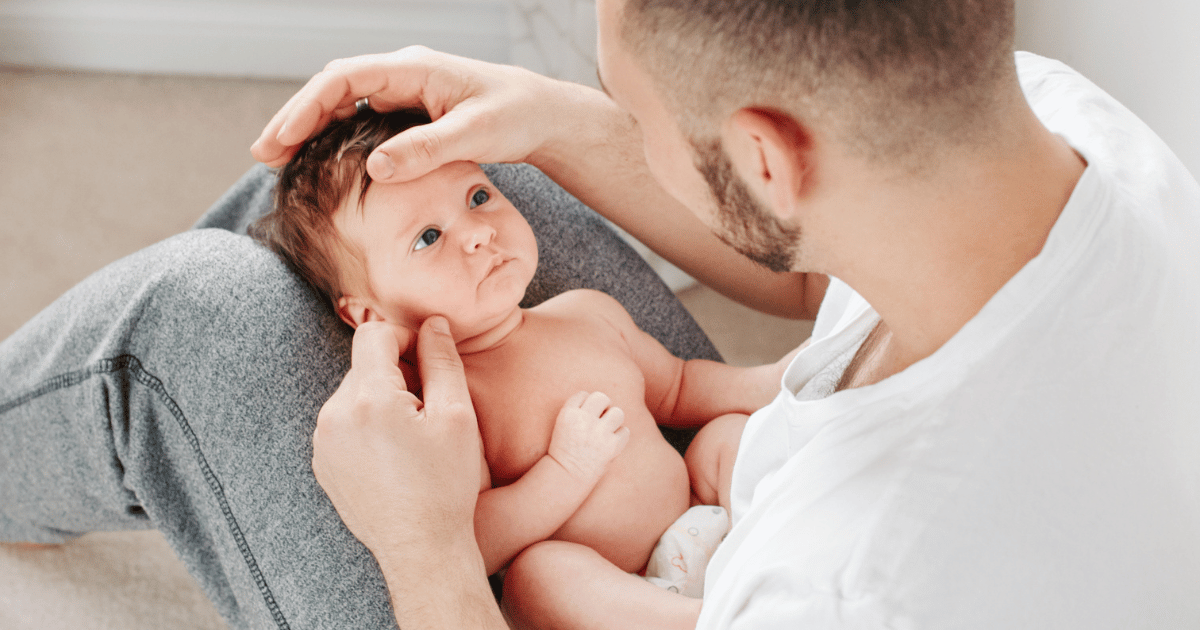This One Action Can Create a Competent and Confident Dad (Part 1)
It’s no secret that becoming a first-time parent changes everything – social life, sleep patterns, finances, and … neuroplasticity?
Researchers have discovered that our brains actually change when we have children. So much so, that scientists can tell whether a woman is a mother or not, simply by looking at a scan of her brain! The physical brain capacities for parenting competence – factors like empathy and caregiving – all grow.
And now a brand-new study has found that the brains of fathers undergo a similar transformation – IF the father does a few key things, which I’ll describe shortly. These brain changes actually increase a man’s competence at fatherhood – and lead to greater sense of confidence.
Part 1 of this blog will describe the key factors that matter, and Part 2 will share key steps (for both dads and moms) that unlock this new superpower.
Factor #1: A first-time father has the potential for significant brain-based changes
Scientists studied first-time fathers in the U.S. and Spain, both before and after the birth of their first child. They found a wide array of changes in various areas of the brain, especially those that contribute to attention and empathy toward the baby – and even to better visual processing. (Researchers theorize this improves the ability to see and interpret a baby’s visual signals. In other words, it helps a confused parent better diagnose what a squalling infant actually needs!)
But here’s the thing. Some dads showed only minimal brain changes, while others showed immense transformation. And the more a man’s “fathering brain” capacities increase, the more likely he is to have greater skill and confidence as a dad. My research has shown time and time again that men care as much about being good dads as women care about being good moms. Most men will want to do whatever they can do to up their game. So here’s the crucial factor that made the difference between whether the outcome was relatively minor or very impactful.
Factor #2: Regular, hands-on involvement with the baby appears to catalyze the greatest brain change
Scientists were curious as to why there was a wide range of brain impacts among new fathers. But they noted a major difference based on where study participants lived. Although most fathers had brain changes that supported better attention toward their infants, the effect was less pronounced among U.S. men and more pronounced in men from Spain – where, as it happens, generous paternity leaves are the norm. Weeks or months of paternity leave generally allow Spanish fathers to spend much more time with their newborns – and the brain responds accordingly.
More research is needed, but greater time and hands-on involvement simply seem to catalyze greater brain change to help men more confidently interact with the baby. (And toddler, and child, and adolescent, and …)
Since most men want to be great dads, we now have data to suggest that early, hands-on involvement may trigger brain activity that actually helps them in this pursuit.
And the good news may not stop with the newborn years.
Factor #3: With more intentional effort, brain plasticity can be catalyzed at any age
What about for older dads, who are well past the newborn phase and perhaps are regretting that they didn’t (or couldn’t) have as much hands-on involvement in the early years? The ability for a brain to change is referred to as “plasticity” by scientists, and the U.S.-Spain study only looked at the brain plasticity of early-stage dads. But plenty of other research has demonstrated the brain’s overall plasticity for a lifetime. The key appears to be intentionality and effort if it is outside of a natural, biological “window.”
As just one illustration of this, research has found that the intentional learning that happens in psychotherapy often creates major physical changes in the brain, allowing the participant to do better at what is needed in psychotherapy: regulate emotion, thinking, and memory. Having seen many of these examples, scientists theorize that any intentional effort will create neural pathways and increase skill at the matter at hand – it’s just that person may have to put more effort into the process if it isn’t a period of optimal plasticity.
So the overall implication is clear for all the fathers out there: the more you are intentionally involved with your child, regardless of your parenting stage, the more you will be deepening those neural pathways, increasing your competence, and enjoying the confidence that comes with it!
We will unpack the practical actions that will most help you (and the woman in your life) do that, in Part 2.
If you are interested in having Shaunti bring research-based strategies, practical wisdom and biblical principles to your next event, please contact Nicole Owens at [email protected].
On our podcast, I Wish You Could Hear This, Jeff and I offer proven steps to help you thrive in your life, faith and relationships. In other words, we’ll offer the practical help you’ve grown accustomed to right here in this blog space. You’ll take away specific steps that help you today. Listen, follow, and share with your friends on YouTube, Apple Podcasts, Spotify and other platforms.
Please note: This post may contain affiliate links. As an Amazon Associate we earn a small amount from qualifying purchases through these affiliate links. This doesn’t cost you anything, and helps us continue bringing you great content!







